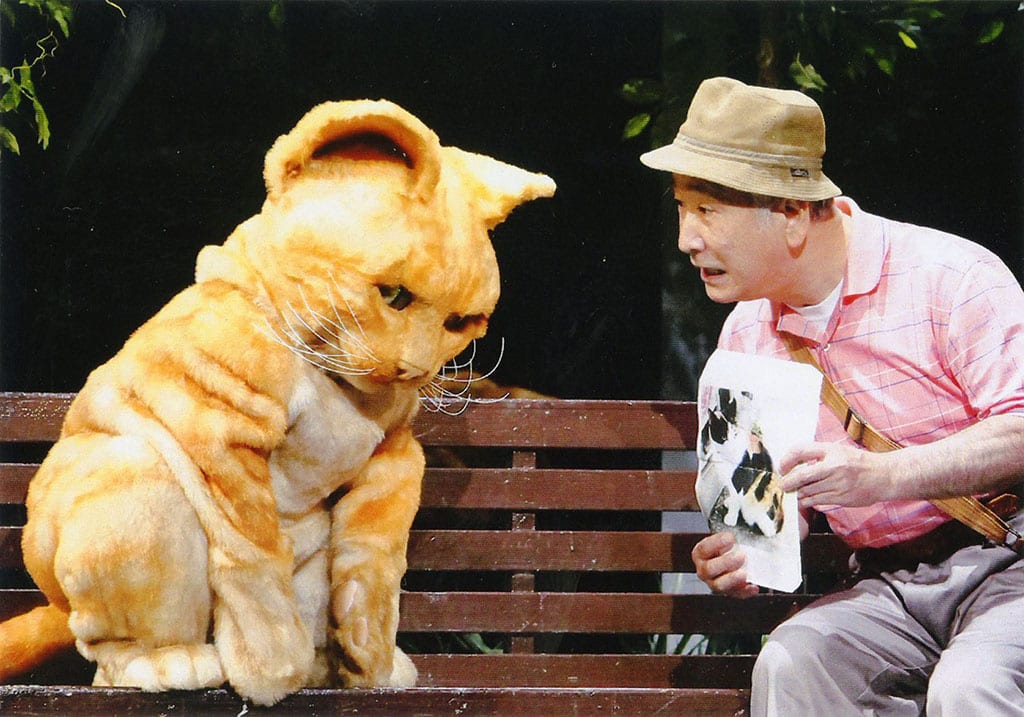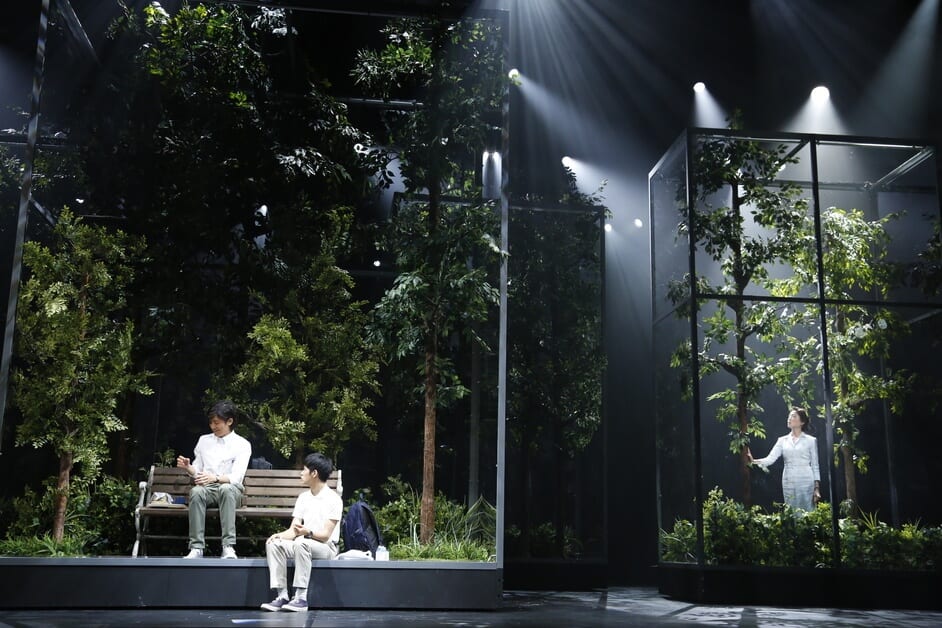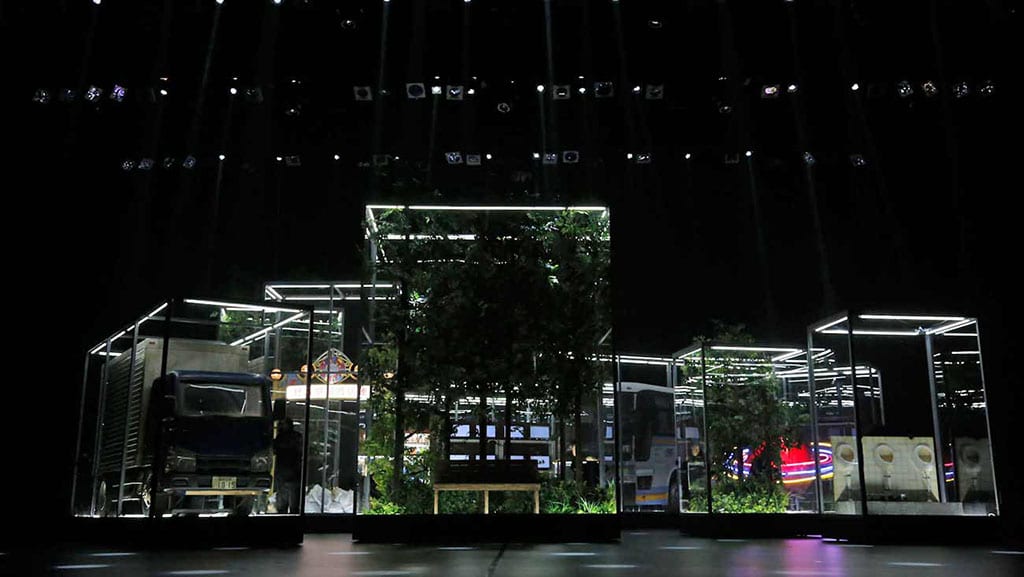Murakami’s Kafka on the Shore is an epic and complex novel of dreams and alternate universes past and present barely rooted in the shaky reality of modern day Japan. The plot follows Kafka, a young runaway who falls in love first with a library and then the mysterious woman who works in it and, in alternate chapters, Nakata the cat seeker, an old man left brain damaged by a mysterious incident at the end of the Second World War who spends his days looking for lost moggies. The lovable fool isn’t the only one searching for something. The characters’ journeys run parallel, frequently and often surprisingly overlapping, as they seek out meaning and conclusions from life through sex, pop culture and ancient philosophy.
An attempt to stage Kafka on the Shore needs ambition and Ninagawa’s production has it by the bucket load. Tsukasa Nakagoshi’s design is magical and little short of genius. It features trees, a real lorry and neon lights encased in giant Perspex boxes which are wheeled about the stage by an incredible team of tech ninjas. The spectacle of it all has to be seen to be believed, especially once the cats start talking.
Ninagawa has the gift of an exceptional cast as well to match his creative team. Katsumi Kiba’s Nakata is particularly well realised and his performance is both funny and deeply moving. Masato Shinkawa is another highlight as Jonnie Walker, a psychopath with a gruesome penchant for feline decapitation who stole his identity from a whisky bottle. The scenes between Rie Miyazawa as Miss Saeki, a librarian who yearns for her lost husband and her youth, and Nino Furuhata as Kafka, a confused young boy with big ideas and bigger dreams, are stunning.
The often bizarre and sprawling plot is impeccably controlled on all fronts. Ninagawa’s Kafka on the Shore is dark, shocking and thought-provoking. A masterful adaptation of a difficult novel, beautifully performed, the sheer craft of the production by far eclipses its more slippery and oblique moments. Ninagawa Company thoroughly deserve their standing ovation, and the extra curtain call for the stagehands.




